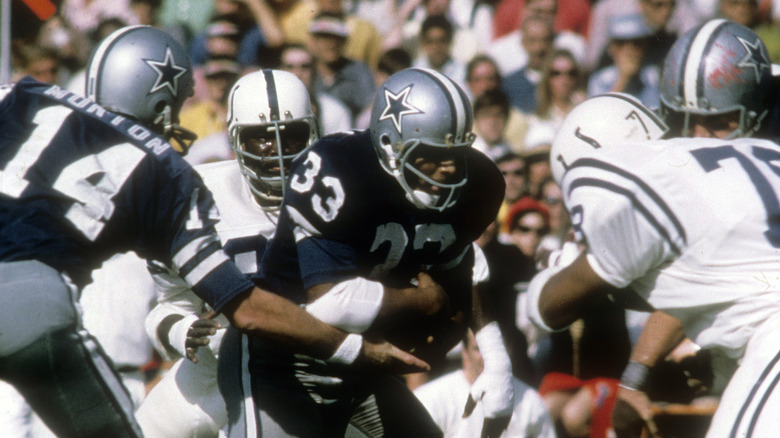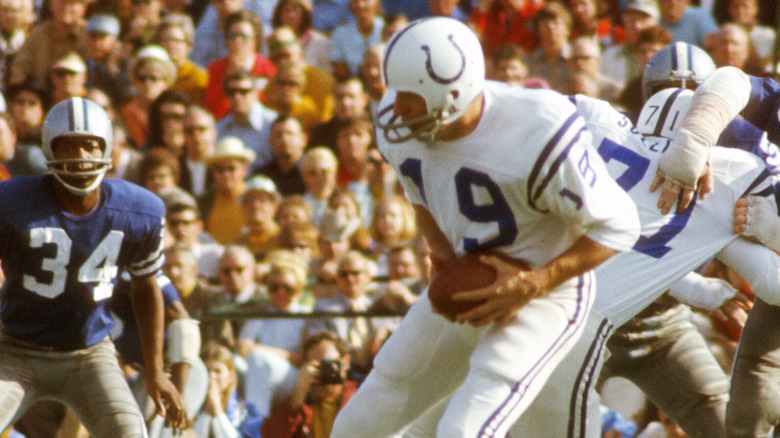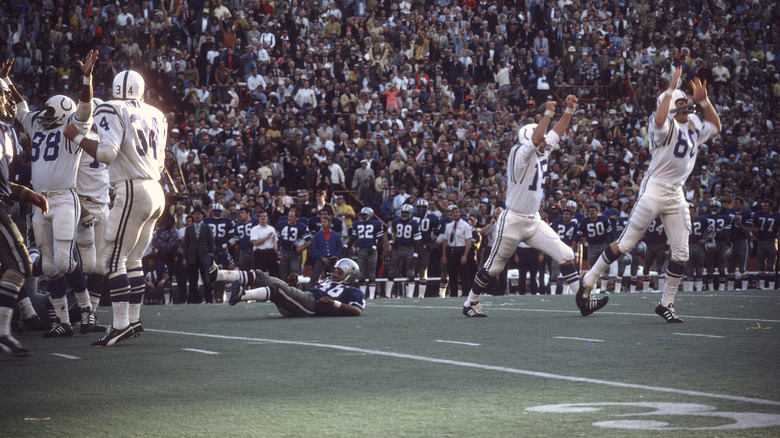The Blunder Bowl: The Story Of One Of The Worst Super Bowls Ever
Super Bowl V, held on January 17, 1971, in Miami's Orange Bowl, was supposed to be a landmark event. The two rival pro football leagues, the National Football League and the American Football League, had finished their merger, giving birth to two conferences with 26 teams total. That year, the game looked to be an exciting match-up with the Baltimore Colts — led by star quarterback Johnny Unitas — against the Dallas Cowboys and their quarterback Craig Morton in their first Super Bowl appearance.
But by the end of the first half, everyone watching the game understood they weren't witnessing high-caliber football but something more akin to a slapstick comedy act, even though there were many incredible players on the field. It was such a stinker of a game that it earned not one but three embarrassing nicknames: "The Stupor Bowl," "The Blooper Bowl," and "The Blunder Bowl." The primary culprit, many believe, wasn't a lack of skills or drive by the players but what they were playing on.
Fumbles, turnovers, and fouls
In the first half of the game alone, there were two fumbles, two interceptions, and 10 penalties (two of these were personal fouls). Hall of Famer Johnny Unitas, who'd let the Colts to three NFL championships before this game, managed to get off a pass that led to a 75-yard touchdown, but it was one of only three completions he made that day. The Dallas Cowboys' defense took Unitas out, and he spent the second half on the sidelines recovering. The second half wasn't much better for either team. But the biggest blunder in a game full of blunders came in the closing minutes.
Tied at 13 all, Dallas quarterback Craig Morton threw an interception, their fourth turnover that day, when the ball bounced off his halfback's hands and into the waiting arms of a Colts' middle linebacker, who ran for 13 yards before being tackled. This set up a 32-yard field goal attempt by the Colts. The kicker, a rookie named Jim O'Brien, had already faltered with an earlier extra-point attempt he kicked straight into the chest of a Dallas player. He hated playing on the new artificial turf, and he wasn't alone.
A brand new playing field
The Poly-Turf field, made by a competing company to AstroTurf, was brand new, and the players were unused to the slippery surface. "A lot of the turnovers had a lot to do with that damn turf," Ernie Accorsi, the Colts' PR director and scout, recalled in "Super Bowl Monday: From the Persian Gulf to the Shores of West Florida—The New York Giants, the Buffalo Bills, and Super Bowl XXV." "People were slipping all over the place. It was a crazy game."
"Keep your head down and kick it straight," Earl Morrall, who'd replaced Unitas for the second half, told Jim O'Brien just before kneeling down to hold the ball for the kicker (per "Super Bowl Monday"). It was good, and yet another Dallas interception ended the game at 16-13. "Although the Colts won on a field goal in the closing seconds, everything about this game lacked sparkle — from preparation to aftermath," Arthur Daley wrote in The New York Times. To top it all off, Sport magazine, which was then responsible for naming the Most Valuable Player, gave the award to a player on the losing team — the only time in Super Bowl history it's happened. Dallas linebacker Chuck Howley, who intercepted two passes and made a fumble recovery, earned the award (not that his team could do anything with the turnovers). It truly was a Blunder Bowl all around.


